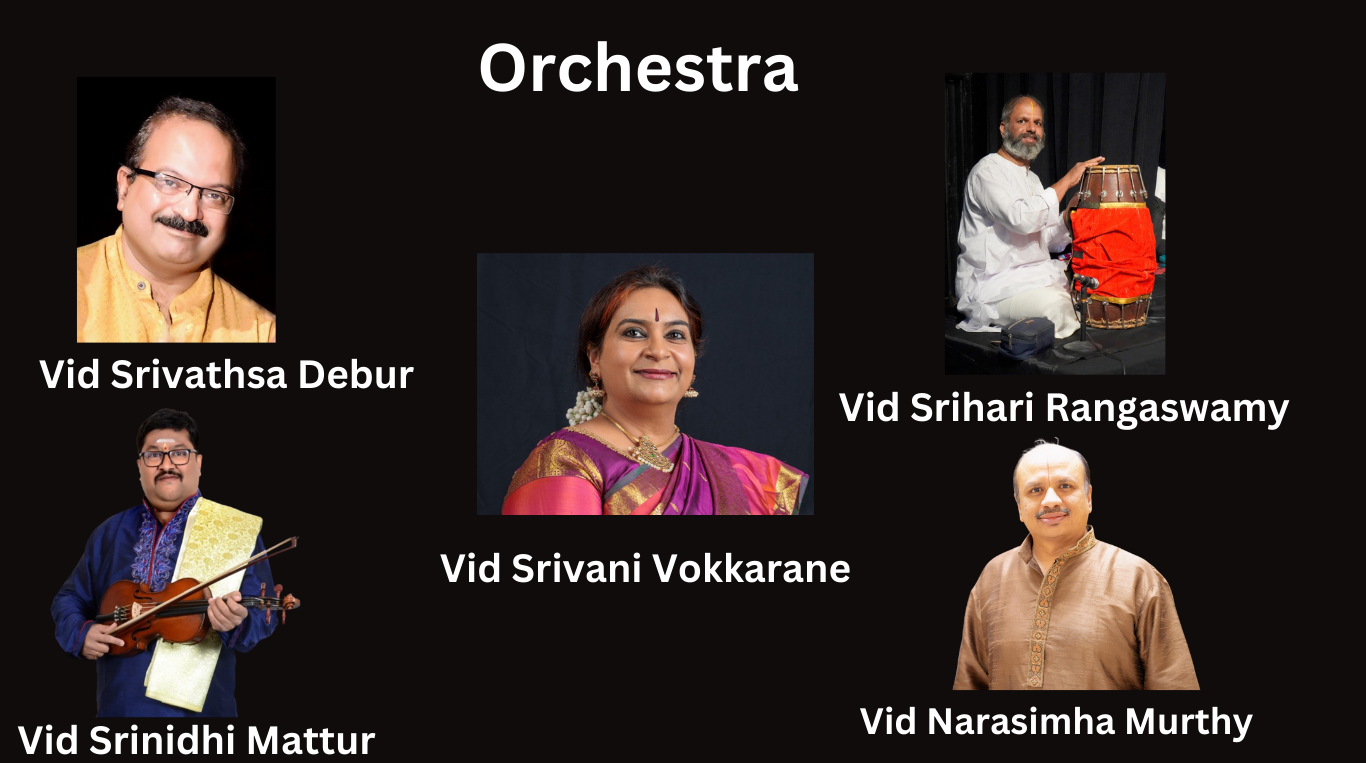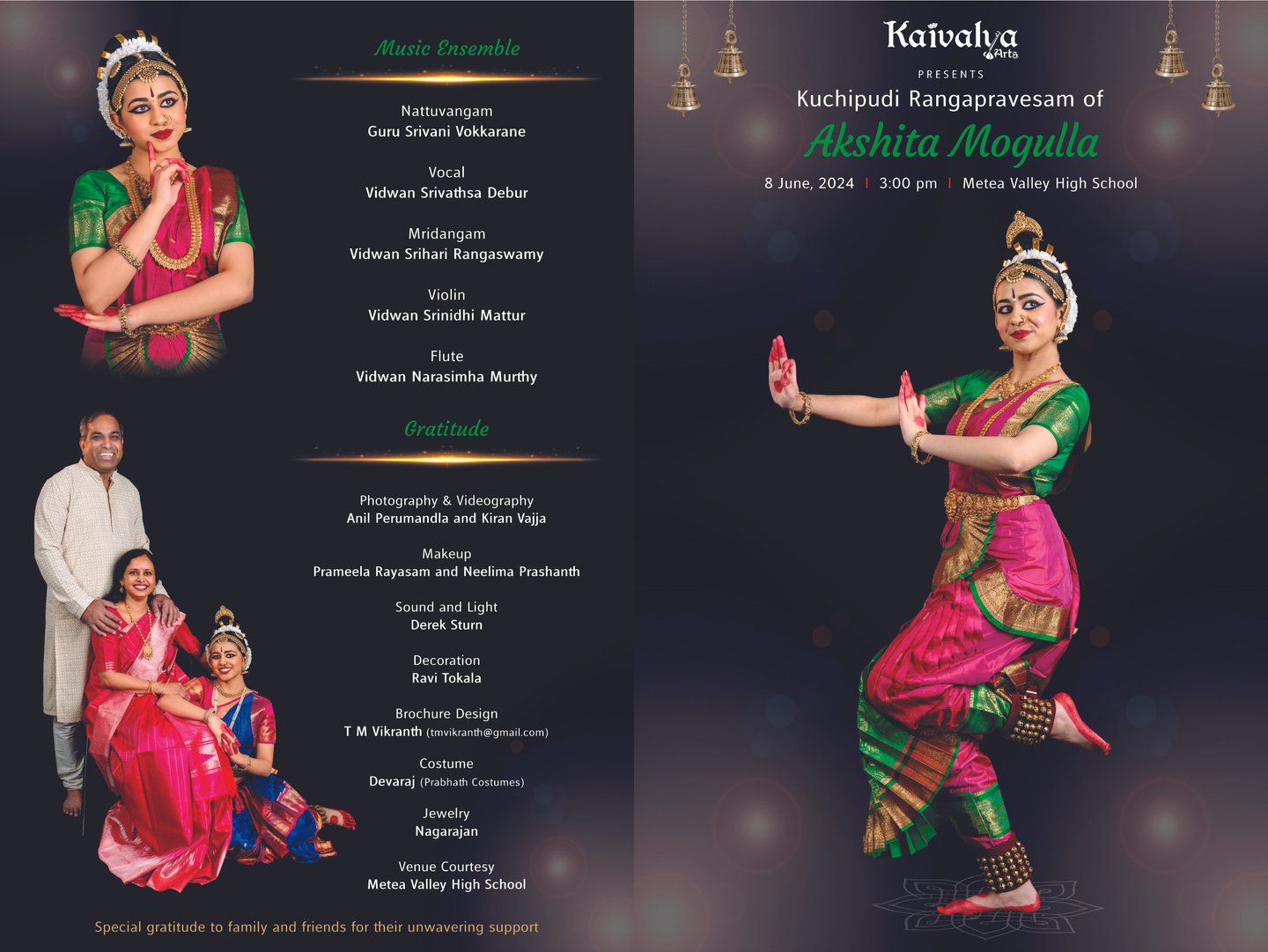
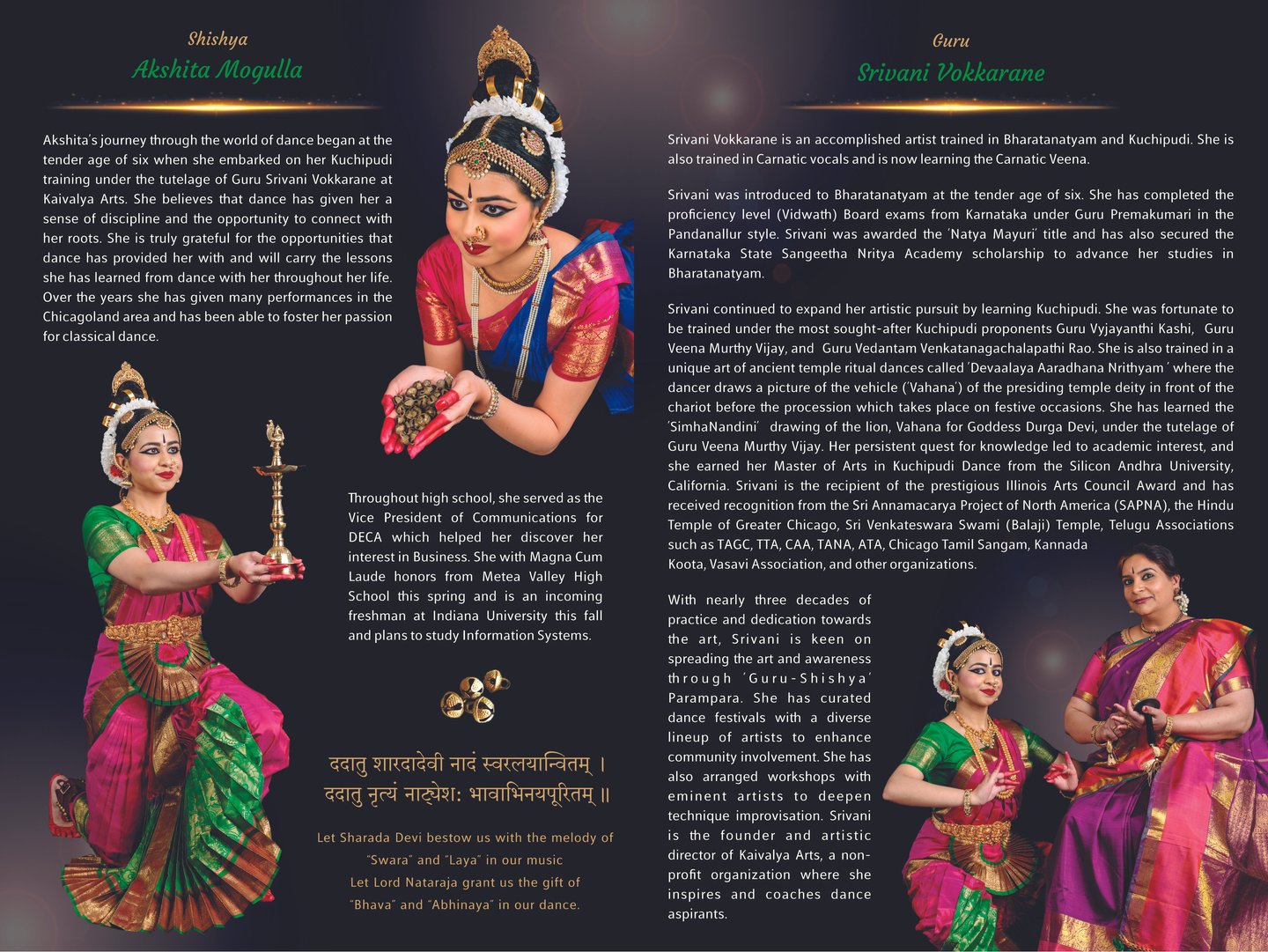


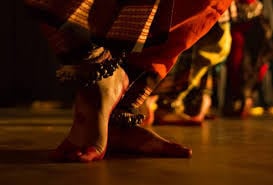
Program Details
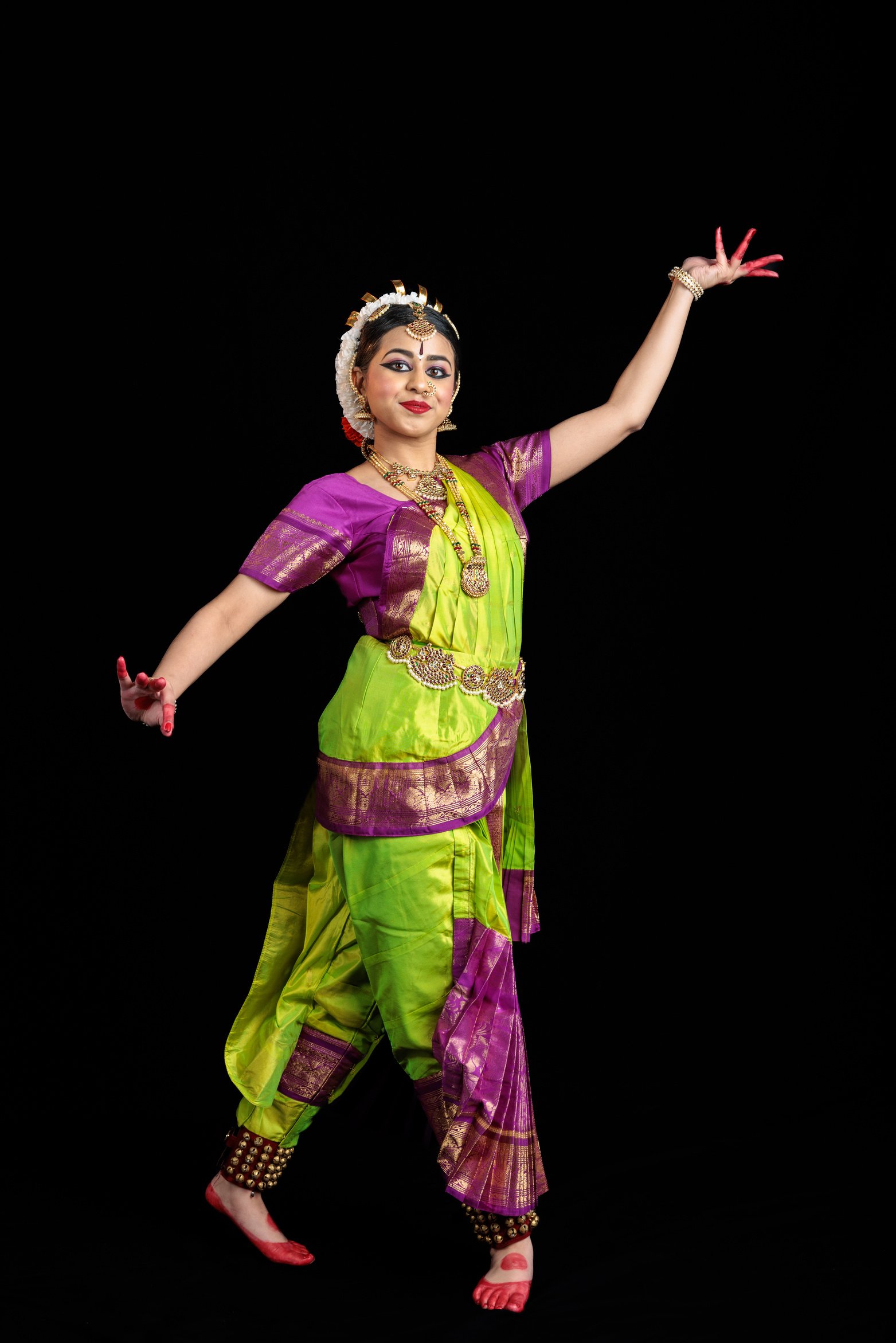
Pushpanjali
Raga: SimhendraMadhyamam
Tala: Adi
Choreographer: Guru Vyjayanthi Kashi
Composer: Vedantam Prahlada Sarma
The term "Pushpanjali" literally translates to "offering of flowers," and this dance segment serves as an invocation, offering respect and devotion to deities, the guru (teacher), and the audience.
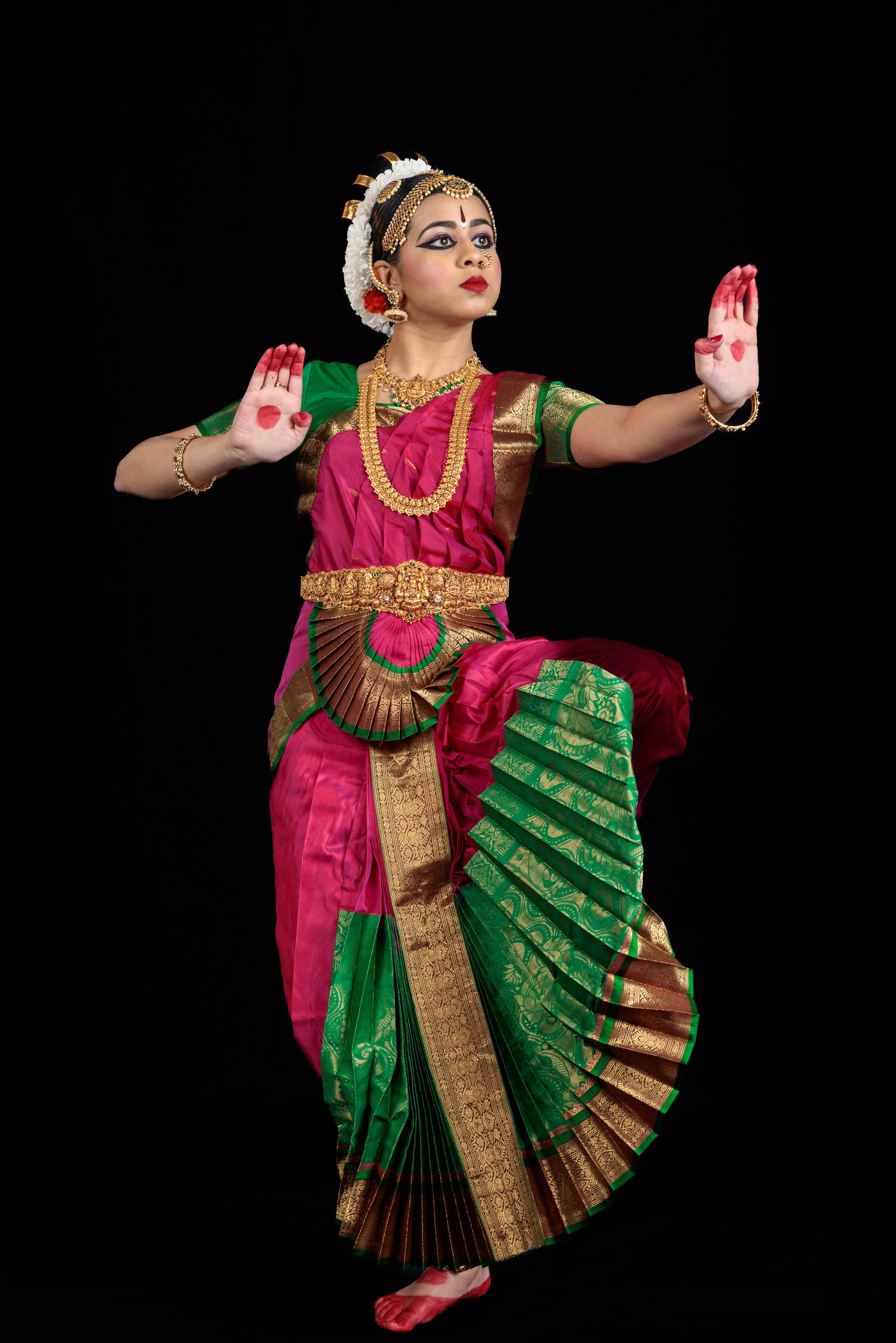
Sandhya Tandava
Raga: Attana
Tala: Adi
Choreographer: Guru Vyjayanthi Kashi
Composer: C. R. Acharyulu
Sandhya Tandava is a vibrant and spiritually significant dance piece that captures the essence of Lord Shiva's cosmic dance. It combines dynamic movements, expressive abhinaya, and complex rhythms to create a powerful and captivating performance. Tandava refers to the vigorous dance of Lord Shiva, symbolizing the cosmic cycles of creation and destruction. Sandhya Tandava specifically represents the evening dance, depicting a time when the day transitions into night, blending energy with serenity.
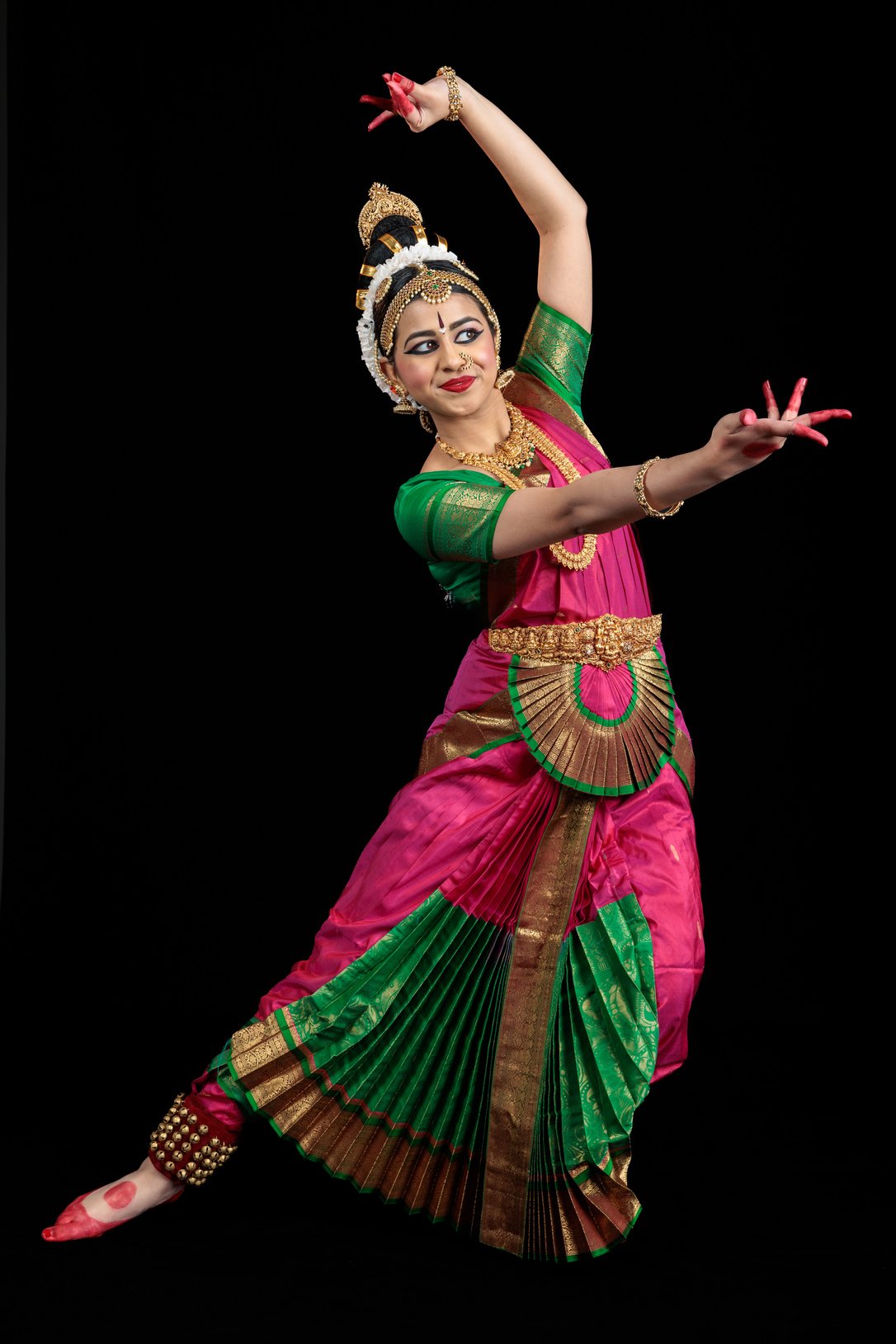
Svarapallavi
Raga: Kharaharapriya
Tala: Caturaṣra Tripuṭa
Composer: T.K. Saroja
Svarapallavi is a pure nṛtta piece with intrinsic movements and hastās, emanating rudimentary charm. There is no scope for abhinaya or mime in this piece. The well-knit rhythmic patterns are placed on a Pallavi svara of any chosen Carnātic rāga.
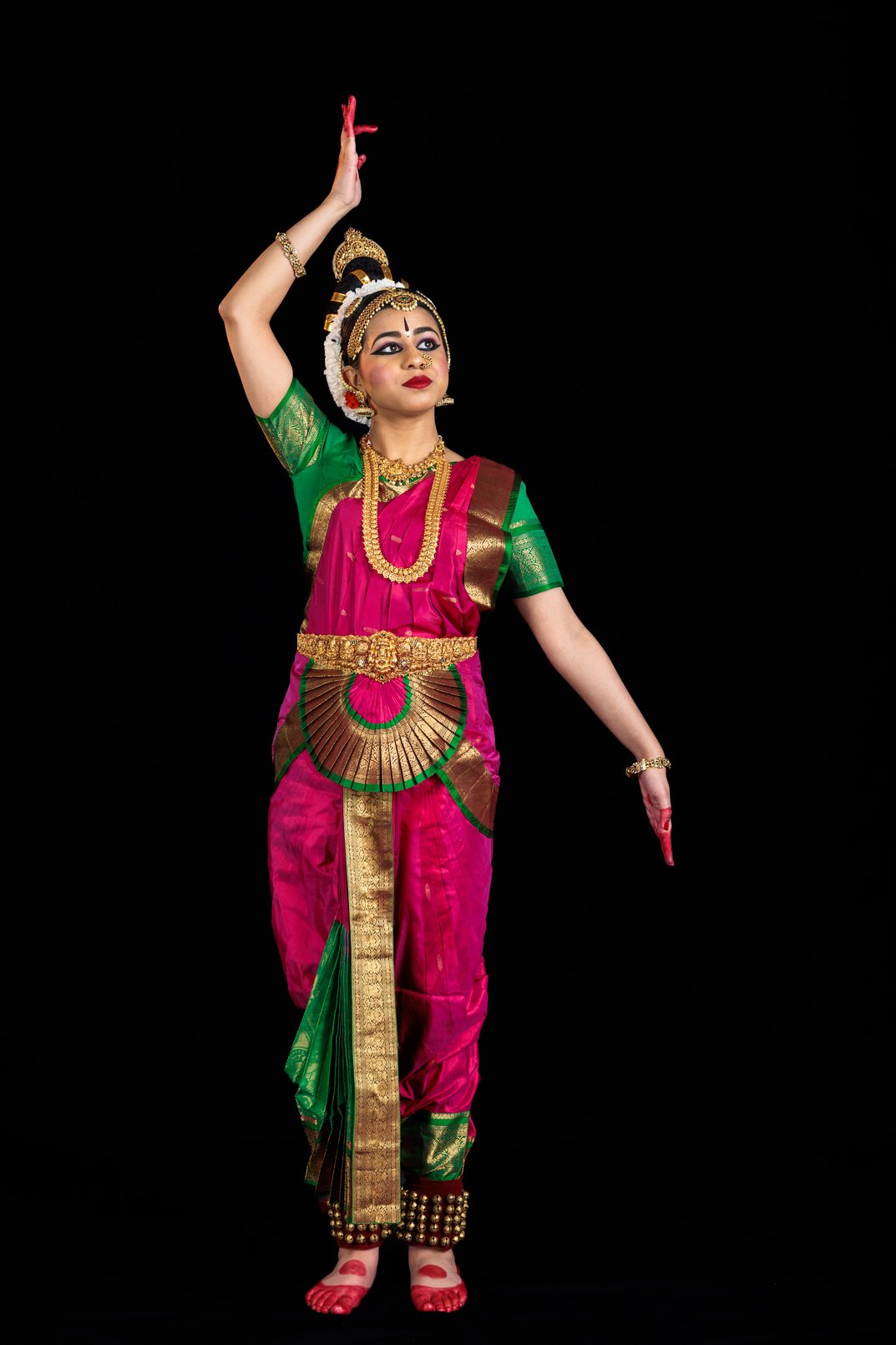
Ramayana Shabdham
Raga: Mohana
Tala: Adi
Choreographer: Guru Srivani Vokkarane with guidance from Guru Vyjayanthi Kashi
Ramayana Shabdam highlights key episodes from the Ramayana, such as Rama's birth, his marriage to Sita, the exile into the forest, the abduction of Sita by Ravana, Hanuman's devotion, and the eventual battle and victory over Ravana.
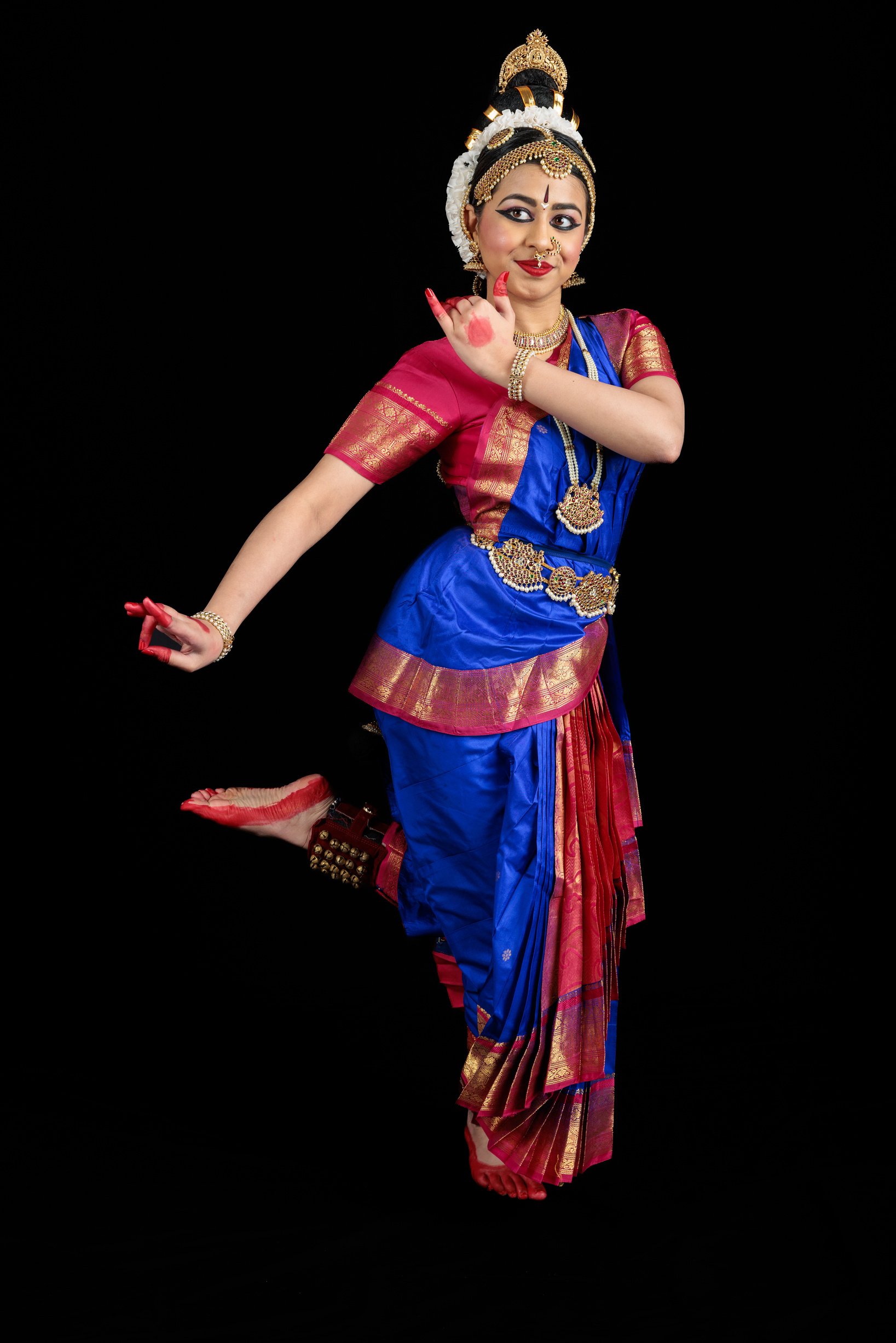
Chaliye Kunjanamo
Raga: Brindavanasaranga
Tala: Adi
Choreographer: Guru Bragha Bessel
This evening, we will witness the enchanting Padam 'Chaliye Kunjanamo,' a classical piece depicting Abhinaya. The lyrics, composed by Maharaja Swati Tirunal, narrate a poignant moment where the heroine, or nayika, lovingly invites her beloved to join her in a secluded, serene grove.
Through the expressive art of Abhinaya, our dancer will bring to life the nayika’s deep emotions—her longing, anticipation, and the tender persuasion in her eyes. You will see how her graceful movements and nuanced gestures vividly depict the romantic setting of the lush garden, filled with the fragrance of blooming flowers and the melody of chirping birds.
As the dancer interprets the poetic lyrics with intricate facial expressions and fluid hand gestures, we invite you to immerse yourselves in this timeless tale of love and nature's beauty.
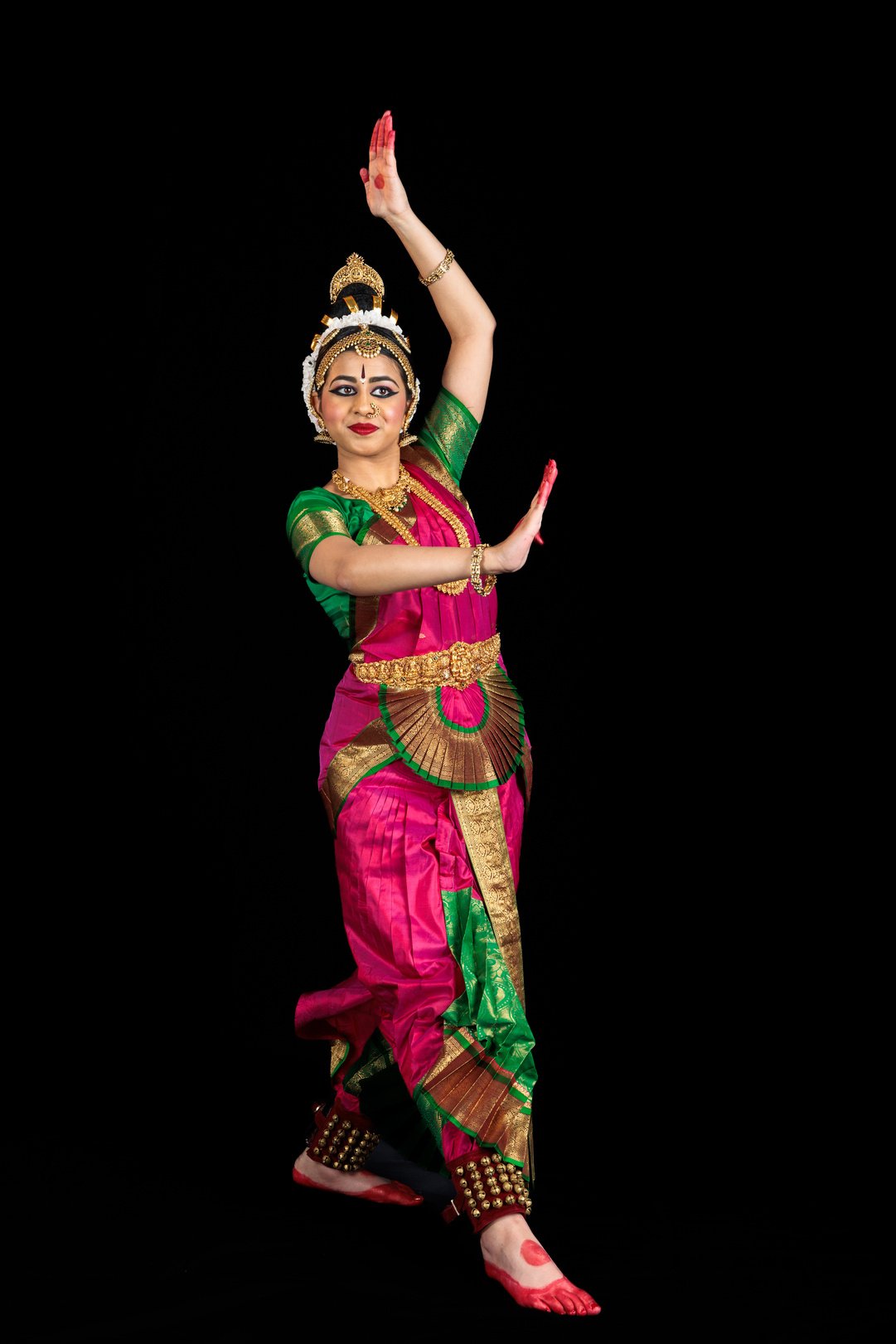
Usha Parinaya - Daruvu with Vacikam
Raga: Madhyamavati
Tala: Adi
Choreographer: Guru Pasumarthy Rattaiah Sarma and Dr. Vendantam Venkata Nagachalapathi Rao
Usha Parinayam is a popular Yakshaganam, written by Chintala Chidambara Kavi knits the story of Usha and Aniruddha’s marriage. Usha, the beautiful daughter of Banasura, prays to Lord Shiva and Parvati who are posted at the entrance to her father’s fort and learns the art of dance from Parvati. One day, Usha falls asleep and in her dream she experiences an intimate and romantic love play with a handsome young man. The Pravesa Daruvu includes specific music, rhythm, and choreography tailored to the character's attributes, emotions, and importance in the story followed by Vachikabhinaya where she renders dialogue about her dream with her friends.
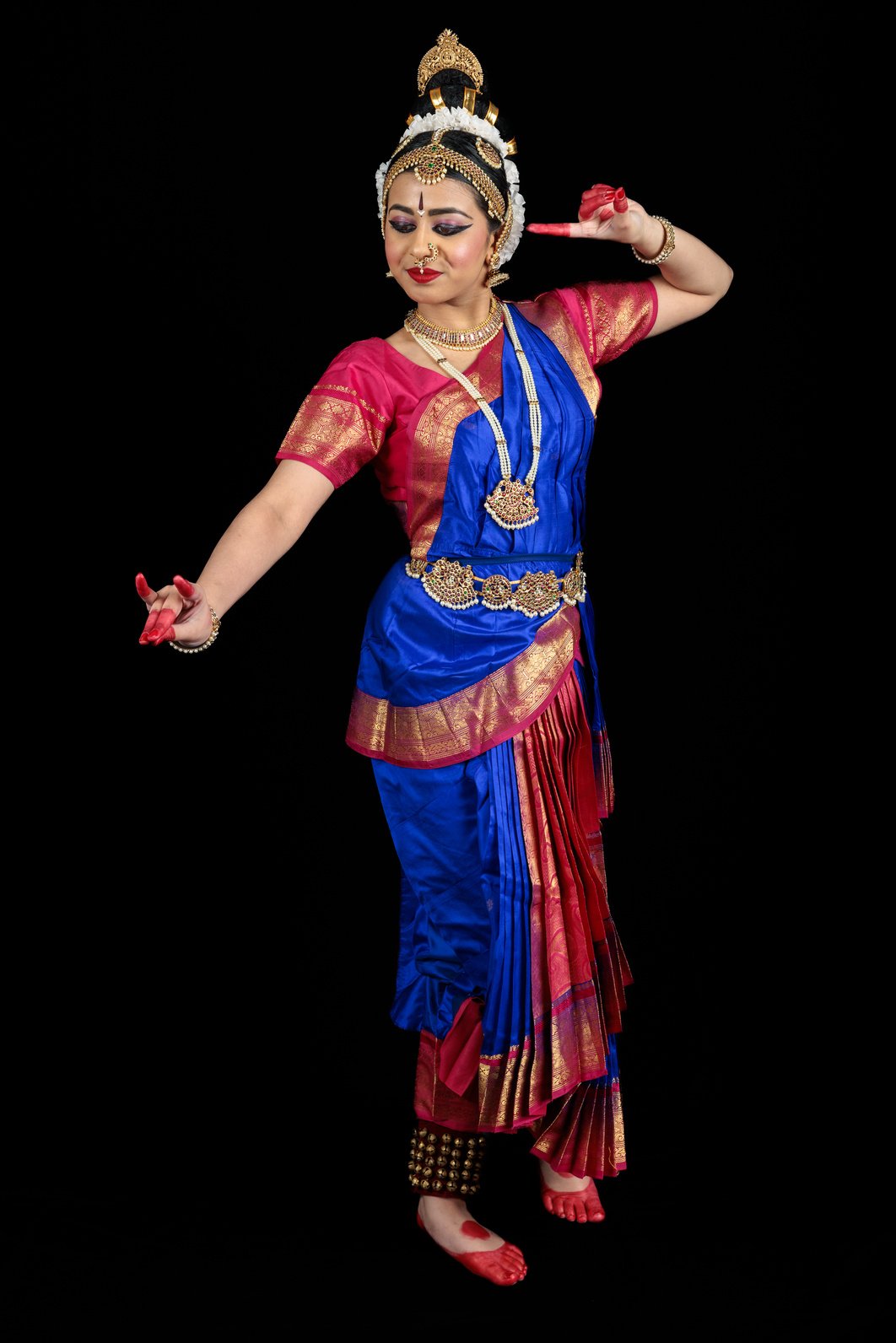
Tarangam – Madhava Madhava Sri Krishna
Raga: Malika
Tala: Adi
Choreographer: Guru Srivani Vokkarane
Madhava Madhava Sri Krishna is from the second Taraṅgaṃ. Tarangam is a unique and complex piece in the Kuchipudi repertoire where the dancer executes intricate footwork for complex rhythmic patterns with grace and dexterity. While dancing on the plate, the dancer also executes footwork in a manner of sawāl jawāb, the repartee between the percussionist and the dancer. While rooted in tradition, the Tarangam allows for creative expression and innovation within the framework of Kuchipudi. The episode of Krishna as an incarnation of Lord Vishnu in Kurma avatar and saving Draupadi during her Vastrapaharana will be narrated.
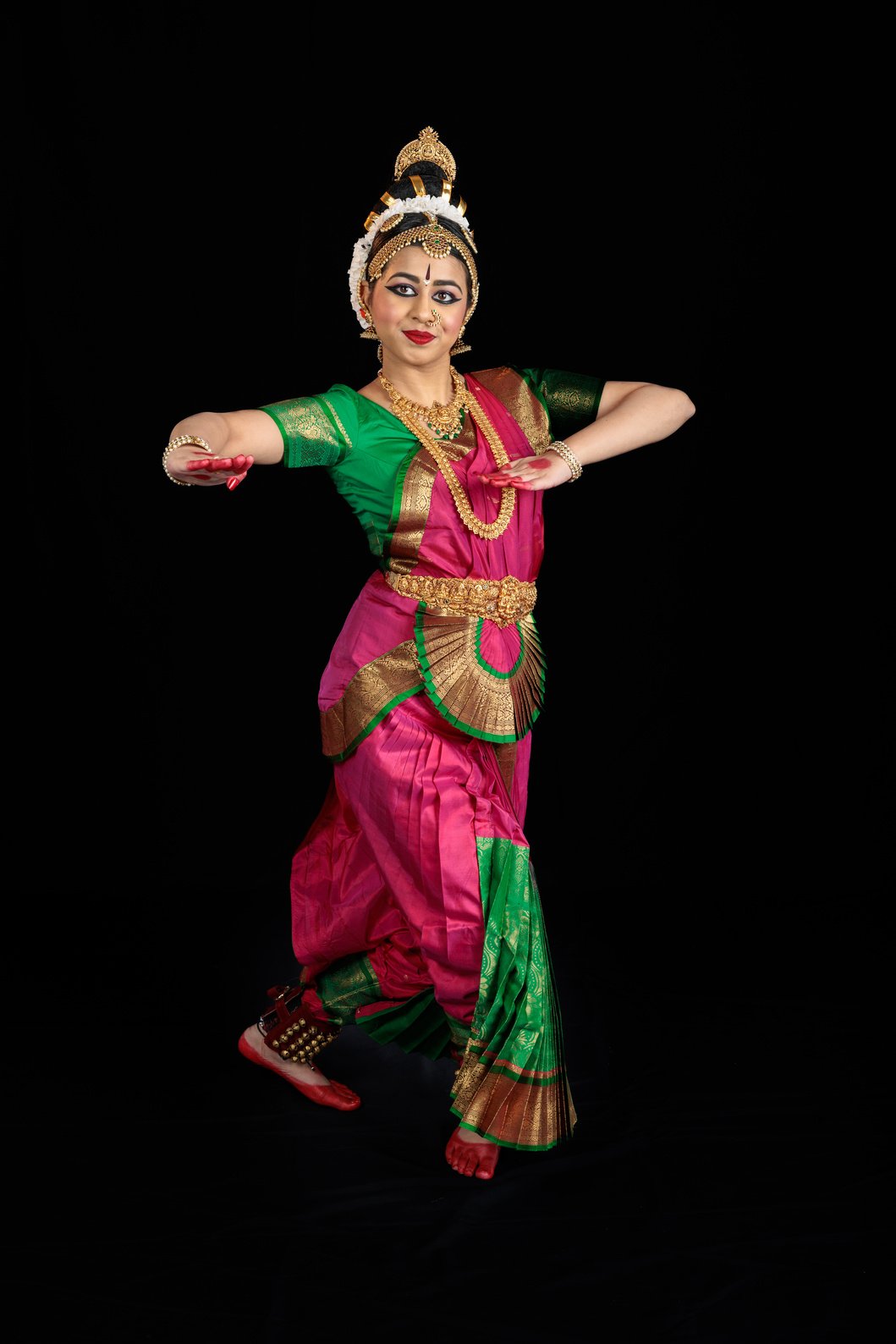
Mangalam
Raga: Malika
Tala: Adi
Choreographer: Guru Srivani Vokkarane
Composer: Ramadasu
Mangalam serves as a graceful conclusion to the recital, providing a sense of completion. Mangalam is an expression of gratitude to the divine, the audience, the gurus, the musicians, and salutations to all.
